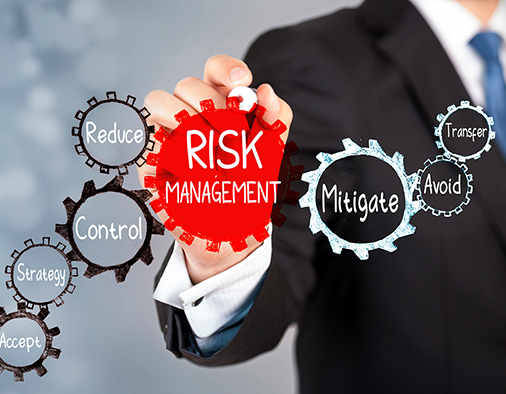Overview
Risk Management Professional
Start your prep for the PMI Risk Management Professional (RMP) certification exam with the PMI Risk Management Professional (PMI-RMP) program. The performance-based labs included with this program deliver a unique and useful hands-on experience for learners to gain the practical skills necessary for success in this area and put to use the knowledge from each lesson. The PMI RMP training comprehensively covers the RMP certification exam objectives and helps learners gain an understanding required for working with project management framework, risk management planning, stakeholdercommunication and engagement; risk identification, and risk analysis.
The PMI RMP certification is an industry-recognized vendor-neutral credential that validates your project management skills. The PMI Risk Management certification is targeted at project management professionals who provide expertise in the specialized area of assessing and identifying project risks along with preparation plans. The RMP exam verifies professionals' expertise in risk strategy and planning; stakeholder engagement, risk process facilitation, risk monitoring, and reporting; perform specialized, and risk analysis.
Program Description
This completely online and self-paced nine-module risk management course helps educate project managers in identifying and responding to project risk. This course provides a comprehensive preparation for the Project Management Institute's® PMI Risk Management Professional (PMI-RMP)® certification exam including exercises, self-assessments, interactive games, and case studies along with exam-taking tips and two full-length, 170-question practice exams covering the required five domains of risk management knowledge.
Each module (Risk Strategy and Planning, Stakeholder Engagement, Risk Process Facilitation, Risk Monitoring and Reporting, Perform Specialized Risk Activities) explains how the content in that domain can be used to improve learners' risk management practices.
Risk Management Professional Program Detailed Student Objectives:
- An introduction to Project Management
- Knowledge areas pertaining to project management
- Process groups in project management
- The flow of project Management processes across the project management lifecycle
- Concept of risks in project and program level
- Different perspectives of risks at multiple organizational levels
- Critical success factors for good risk management
- Context of risk management in projects
- Stakeholder risk attitudes
- Project manager’s role in risk identification and communication
- Project risk management processes
- Critical success factors for ‘Plan Risk Management’ process
- Complying with organizational risk management standards
- Risk planning meetings
- Diverse tools used for risk identification – including brainstorming, SWOT analysis, use of checklists etc
- Application of Delphi and force field techniques
- Risk breakdown structure – Risk taxonomy
- Distinction between - risk cause, risk event and risk effect
- Risk register documentation
- Communicating the risks to various stakeholders
- Performing qualitative risk analysis
- Collecting high quality information about risks
- Probability / Impact/ Proximity analysis
- Difference between qualitative and quantitative risk analysis
- Use of various statistical distributions for quantitative modeling of risks – including normal, triangular and beta distributions
- Overall project risks derived from individual risks
- Calculating the risk priority number and the overall risk exposure
- Determining contingency reserves for the project
- Change in project plan due to application of risk responses
- Documenting the planned risk responses
- Risk audits and reserve analysis
- Re assessment of risks and risk register updates
- Integrating risk governance with organizational governance
Certifications
Education and National Certifications
- Students should have or be pursuing a high school diploma orGED.
- Students who complete this program will be eligible to sit for the PMI-RMP Exam
PMI Prerequisites:
- Secondary degree (high school diploma, associate’s degree, or the global equivalent)
- 36 months of project risk management experience within the last 5 years
- 40 hours of project risk management education
OR
- Four-year degree (bachelor’s degree or the global equivalent)
- 24 months of project risk management experience within the last 5 years
- 30 hours of project risk management education
